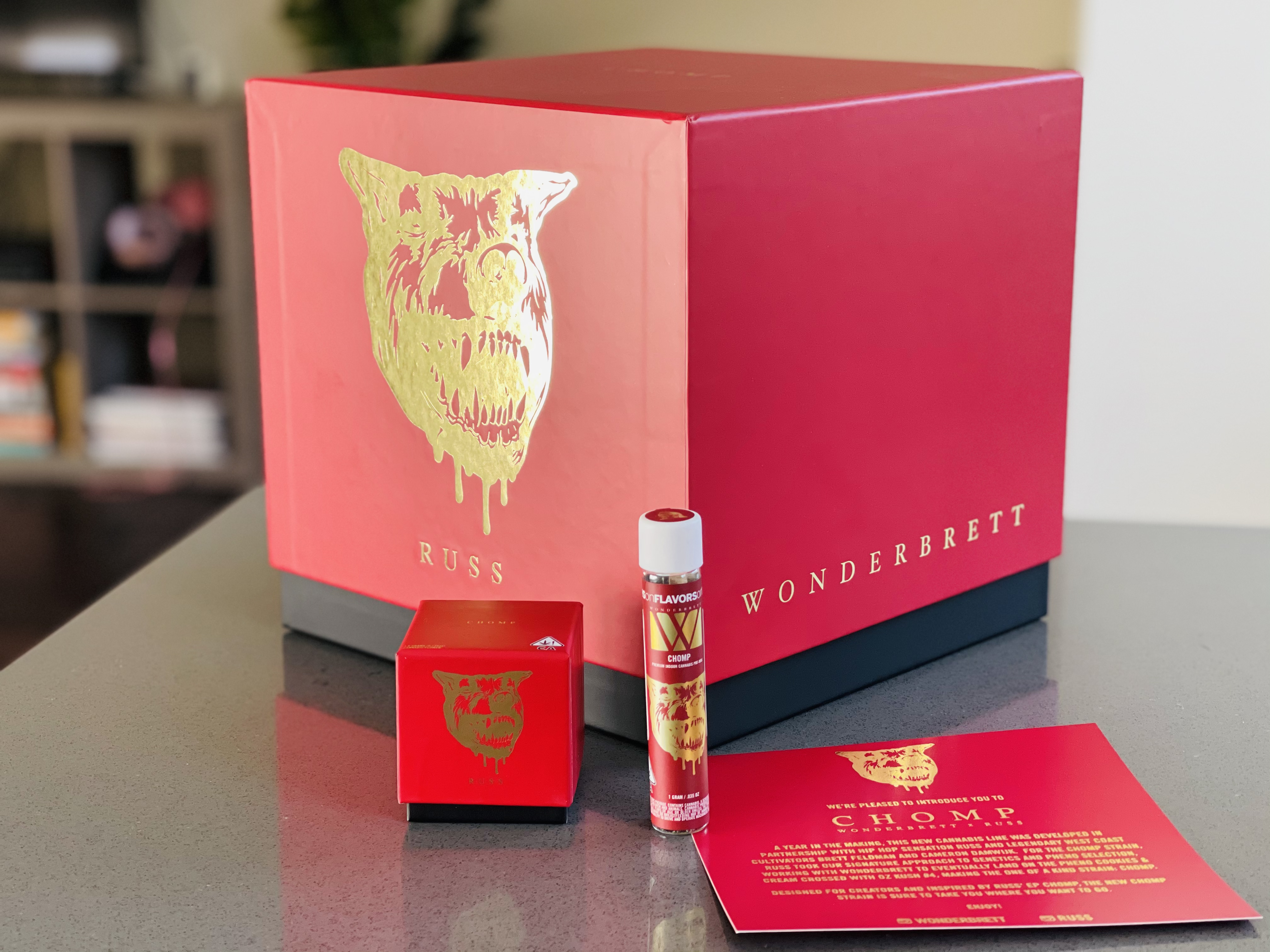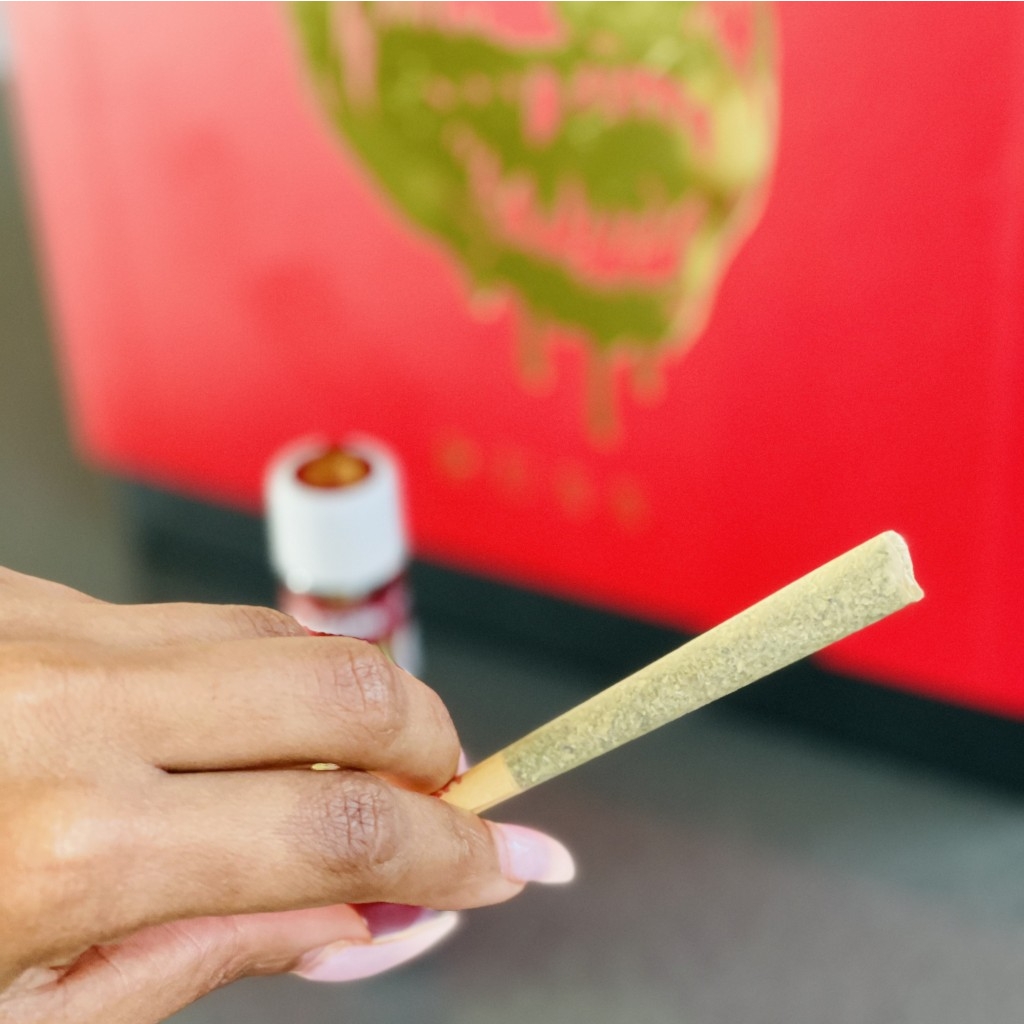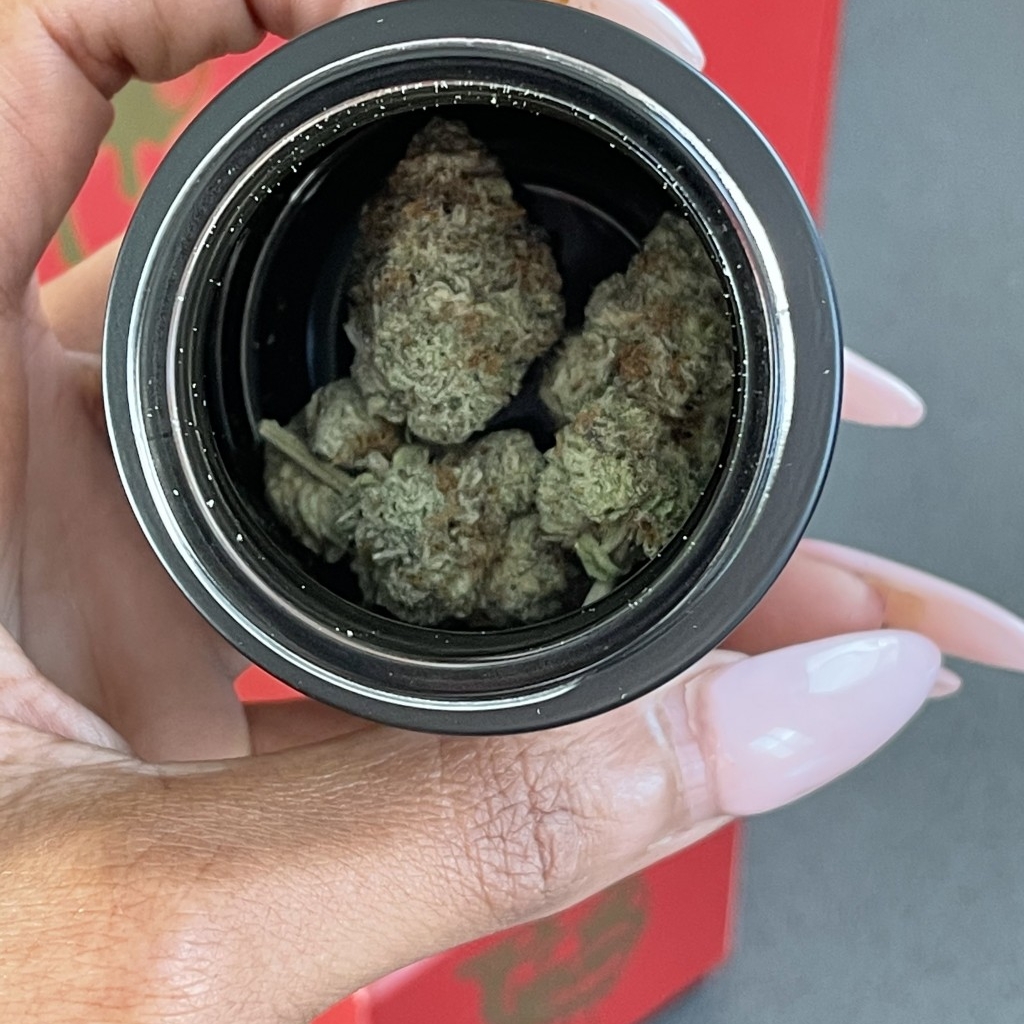
The cannabis industry loves a good origin story. A story like Wonderbrett’s. The brand is named for Brett Feldman, a grower whose flavorful indoor-grown weed inspired a phrase heard around Los Angeles weed circles during the late ’90s and early 2000s — “You got that Brett?”
Equally important to the brand’s foundation is Feldman’s collaborator, Cameron Damwijk, also a master cultivator. The duo formally launched Wonderbrett in 2014, back during the Prop 215 (medical-only) days in California. Before that, Feldman and Damwijk were legends in Los Angeles music, street, and weed culture.
The quick story goes a little something like this: Back in 1997, Feldman was given a cut of OG Kush by Josh D, who along with another storied grower, Bubba, first brought the now-iconic strain to California from Florida in 1992. This may seem quaint now, but back then, this was before OG Kush was a thing outside of very select circles. Feldman went back and forth from the Bay Area, re-upping his supply of the newly in-demand strain for the Los Angeles market. Eventually, it became clear that this wasn’t the most efficient way of getting poundage in the hands of buyers, so Josh D bestowed upon Feldman a clone and basically said “have at it.”
The Brand:
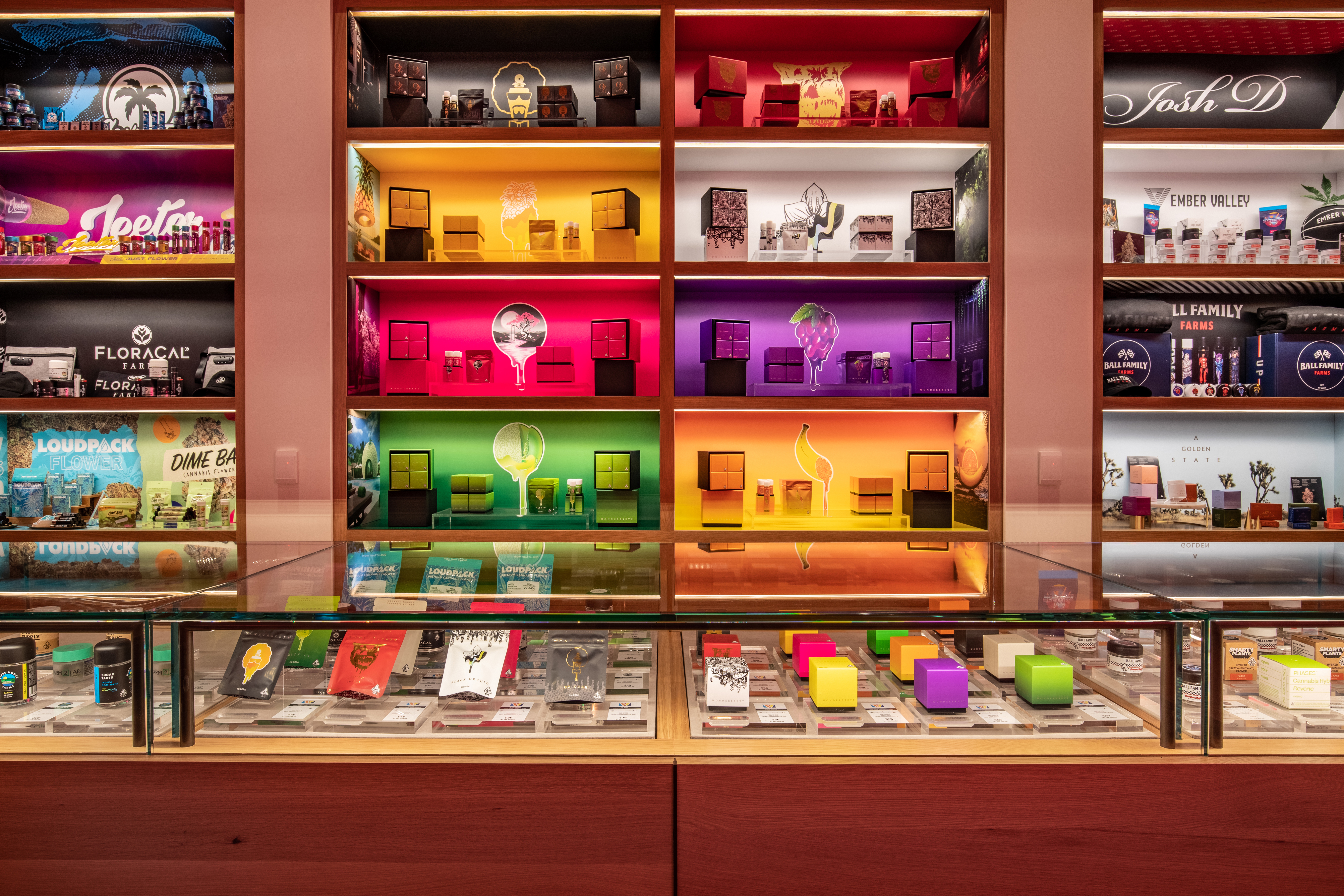
Recognizing he had something special, Feldman took time to learn how to properly grow the strain in order to “not fuck it up,” he said while we toured his now 80,000-square-foot indoor grow facility in Long Beach. “When Kush was given to me, I had to figure out how to grow weed immediately,” he says. “I couldn’t kill the plants!”
And learn to grow he did. Due to the surging demand of OG Kush in Los Angeles during the late ’90s, Feldman soon found himself in the company of hip-hop’s biggest stars: Xzibit, Snoop, B-Real, and Dr. Dre among them. He was even invited to come chill in the studio during recording for Dr. Dre’s album, 2001. B-Real confirmed to me in a separate interview that it was Feldman who introduced him to Kush way back when.
Today, that legacy has turned into Wonderbrett, a full-fledged cannabis and lifestyle brand that maintains roots in the music community — Poo Bear, who is a recording artist and producer for Justin Bieber, Lupe Fiasco, Skrillex, and many others, is one of the brand’s major investors. In fact, Feldman, who is also a visual artist and the man behind the weed’s packaging design, recently released a new album of his own, “Wonderbrett: Volume 2,” which is a vibey, ethereal mix of beats perfect for — what else — smoking weed.
In addition to flower, Wonderbrett also makes solventless rosin gummies, pre-rolls, and dabs.
The Grow
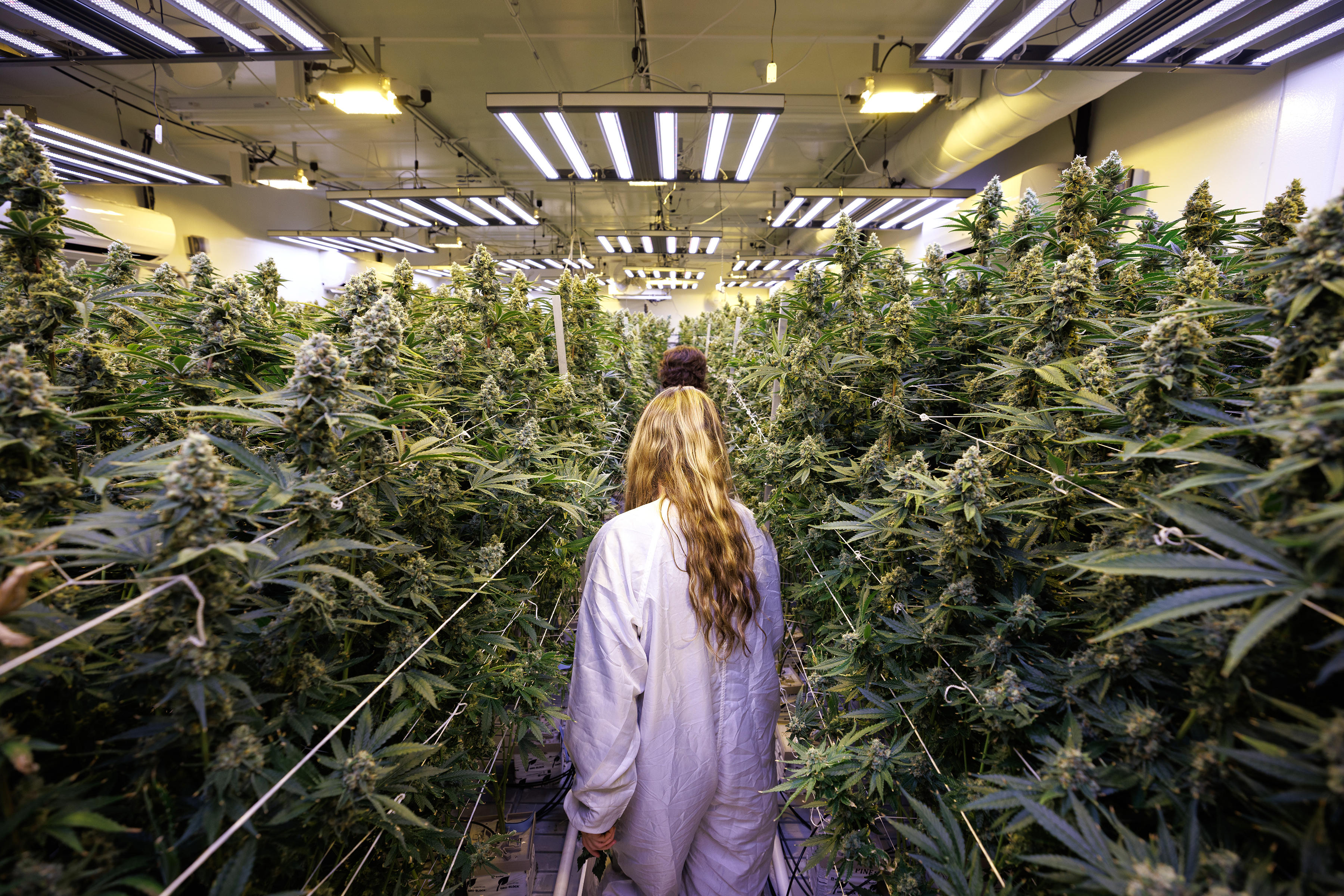
Wonderbrett’s Long Beach indoor cultivation site is massive. The brand grows with a 22,000-square-feet canopy footprint across 36 individual grow rooms. Altogether, it’s about 30,000 plants. Even at his highest capacity back in the pre-legal days, Feldman says he could never have imagined producing at such scale, and that while scaling has gone well for them, it remains the number one challenge.
“On a small grow, it’s easy to have control,” he says. “You’re always going to be able to be the guy who is there all the time, who sleeps at the grow, right? This is different.”
Nowadays, they have 14 proprietary cultivars in rotation, which are selected according to a number of characteristics that make Wonderbrett weed what it is. The brand’s slogan is “flavors on flavors,” and all it takes is one whiff of a jar to see why — to paraphrase Darth Vader, the terps “are strong with this one.” The focus on this aspect of weed makes a strong point often lost in today’s shopping landscape: THC percentage is merely one part of the equation, and not necessarily the most important one.
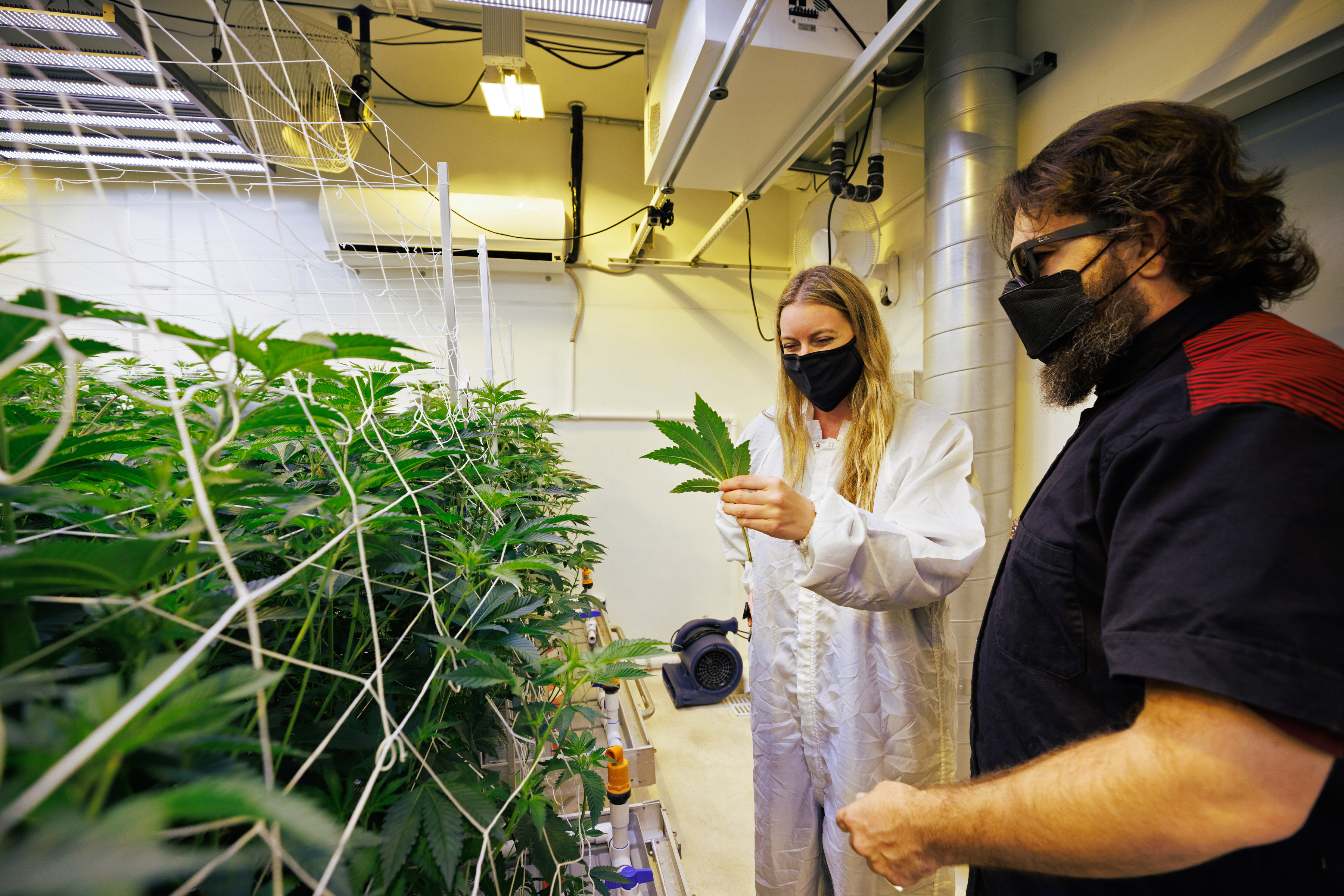
“If you buy weed on THC alone, you’re a dummy,” Feldman says.
It’s also about the terpenes and flavonoids, which is why it’s been so damaging to consumers to not be able to smell the weed they’re considering purchasing. Smelling it tells a massive part of the story. That’s not to say Wonderbrett’s weed isn’t strong — I am puffing on a 34.06% THC sample of the brand’s Pineapple OG as I type — but it’s true that THC potency is skewed as being the dominant marker of quality.
Walking into a Wonderbrett grow room with towering fat buds mere days away from completion makes an even finer point. I was smacked with smell every time I opened a door, whether that be an actual Peach smell in the Peach OZ room or the straight gas emanating from Black Orchid. The vividness matches the brand’s marketing strategy, which is to match dominant terpenes and flavonoids with the strain name as much as it makes sense — making an actionable connection in the customer’s mind. If someone is buying a strain with the word “peach” in the name, might it be a good idea to then pheno hunt for a variety that displays those very characteristics? Feldman says, “Yes. I’m glad you noticed that.” He offers an intentionally cartoonish laugh. “It means my strategy is working.”
The Weed
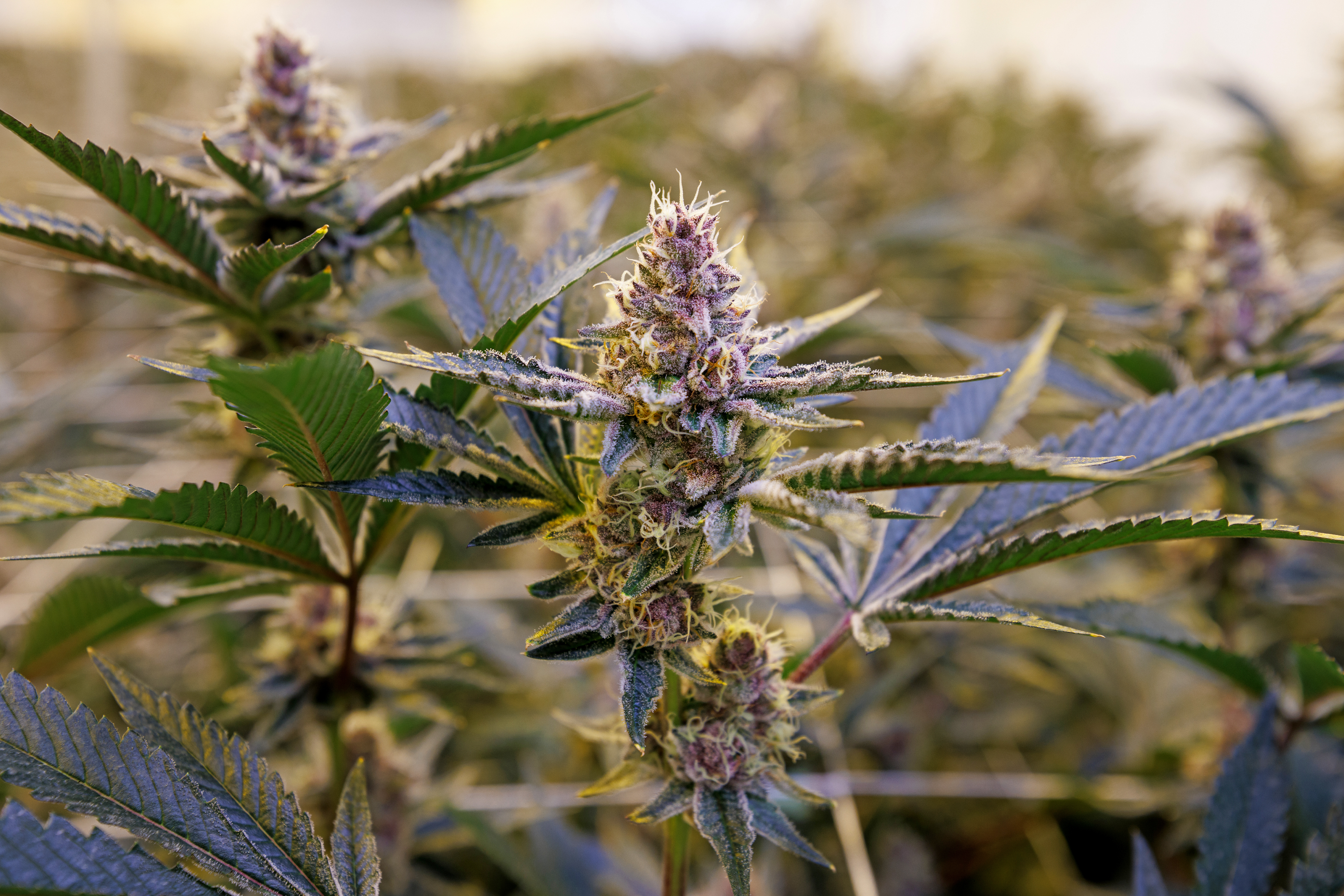
Feldman told me early in my tour — and I can confirm, after seeing it firsthand — that at Wonderbrett they dry trim only, which preserves trichomes, most importantly. Those are the little crystals that contain the fun cannabinoids, like THC, that make us high. He dries and cures for two weeks only. In general, from the day the weed is harvested, then tested, then dried and cured and finally packaged, Wonderbrett’s turnaround is about one month from harvest to package.
Wonderbrett’s jarred eighths aren’t cheap — they average for about $60 — and because they are constantly churning out new buds from their stratified and well-timed grow rooms, their customers are getting as fresh bud as one can possibly get on the legal market. The smell that lingers in the jars confirms this, though the bud is sometimes a bit dry. That’s more of the fault of legalization than any one individual grower.
I walked away from Wonderbrett’s facility with my head swimming in flavor, which is their intent. But does the bud stack up? I tried six: Black Orchid, Pineapple OG, Cherry Trop, Grapes of Wrath, and Chomp, which is the brand’s collaboration with rapper Russ.
The Strains
Pineapple OG

Retail Price: $60
Strain: Indica
THC: 34.06%
CBD: 0.08%
Dominant Terpenes: Limonene, Myrcene, Linalool, Caryophyllene
Easily considered a signature cultivar of the brand, Feldman told me Pineapple OG’s roots go back to 2008, though 2014 is the first time anyone could buy it legally. These are the buds Wonderbrett led with once they could sell in the medical market. He also said it’s been one of the most consistent producers of high THC — the batch I tried, which clocked in at 34%, was no exception.
It’s gassy, redolent of its OG roots, and boasts flavors of sweet and sour fruits, like pineapples, guavas, and passionfruit. It’s easy to see why people love it, and it’s would be a solid go-to in any experienced smoker’s repertoire. Feldman also mentioned it’s a “hardy” cultivar, ideal for breeding, which he has done for other Wonderbrett strains, like Orange Banana.
Black Orchid
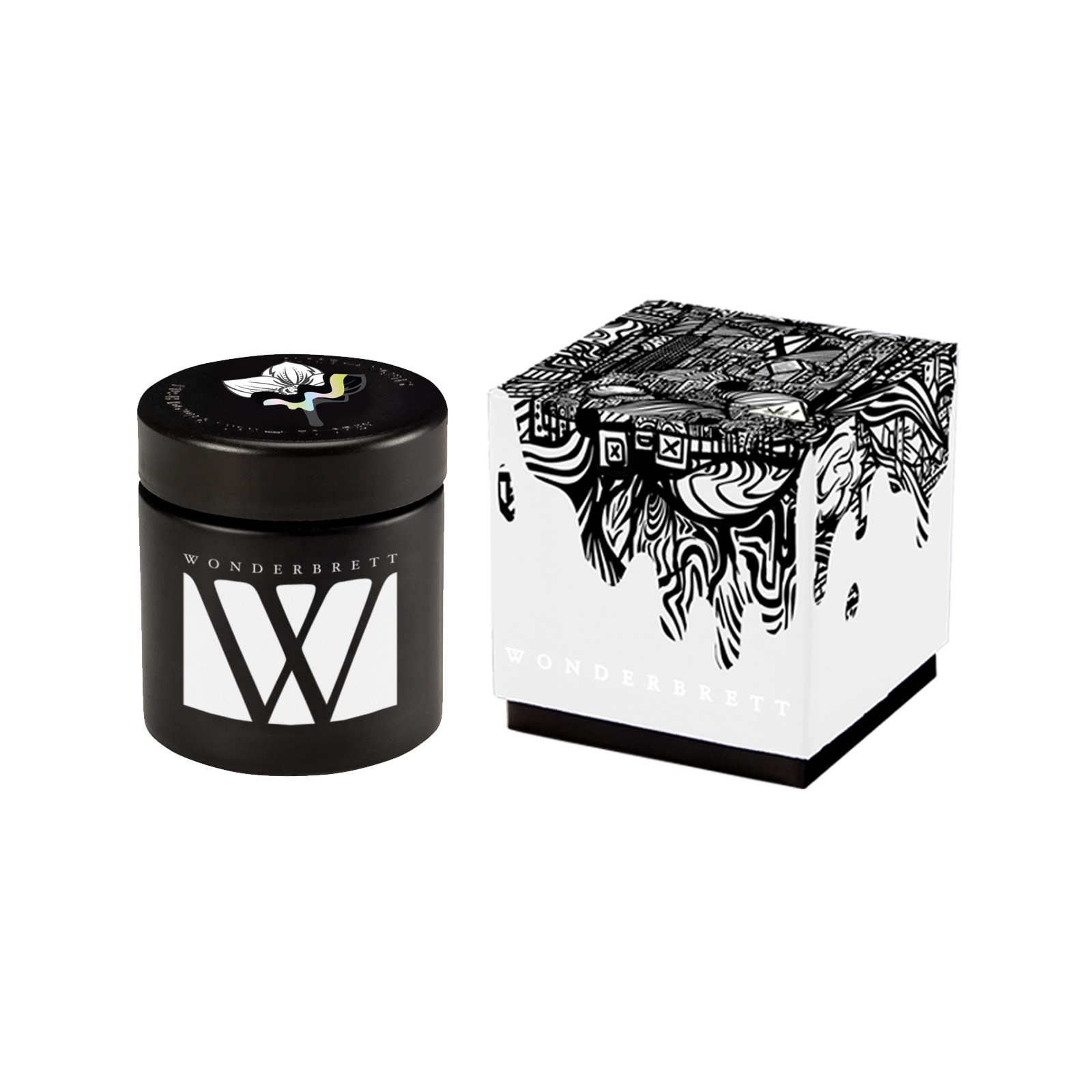
Retail Price: $65
Strain: Hybrid
THC: 22.70%
CBD: 0.05%
Dominant Terpenes: Limonene, Caryophyllene, Linalool, Humulene
Another favorite of mine is Black Orchid, which is a much more functional smoke than Wonderbrett’s other options, owing to its more balanced cannabinoid profile and dense flowers. THC is registered at 22%, which is a “Goldilocks” percentage for me — not too much, not too little, but just right. There are higher percentages of CBG and CBGA, as well, which is said to aid in relaxation. Limonene, Caryophyllene, Linalool, and Humulene are the dominant terpenes, which means this cultivar has a little bit of everything I like: citrus, earth, flowers, and a hint of gas, which one would expect from an OG Kush and Gelato cross.
Peach OZ
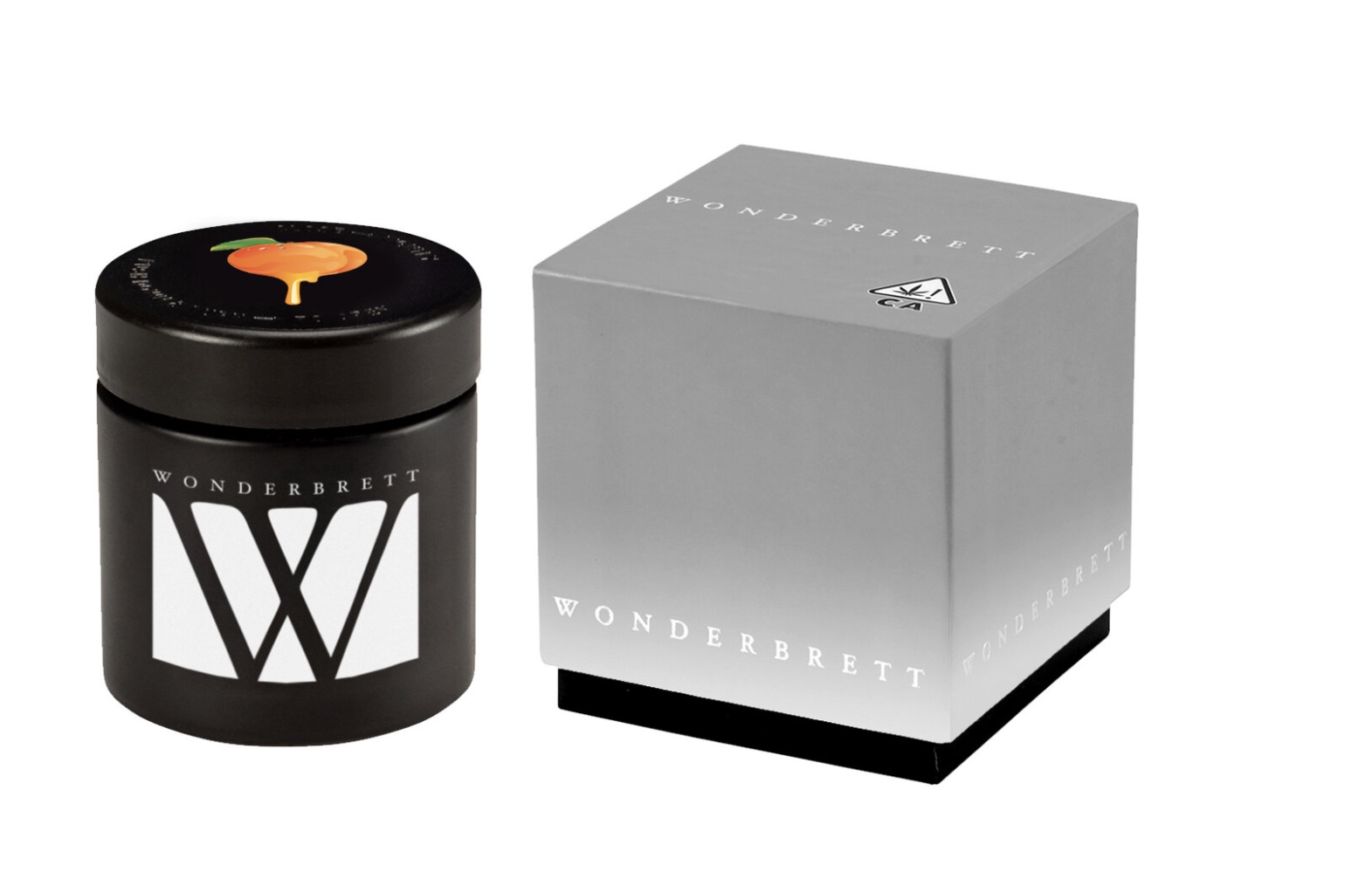
Retail Price: $60
Strain: Sativa
THC: 30.0%
CBD:0.01%
Dominant Terpenes: Caryophyllene, Linalool, Limonene, Humulene
The buzz that results from a Peach OZ smoke is definitely suited for daytime, but 30% THC suggests a daytime activity like taking a leisurely stroll in a beautiful location or sitting on the beach rather than anything that requires serious motor skill function. The smell and flavor match up on this one: peach, sweet citrus and a hint of vanilla round out this cultivar, which was made by Peach Rings and OZ Kush, a pheno gifted from Cannabis by Corey, which originally came from Dying Breed Seeds.
Chomp
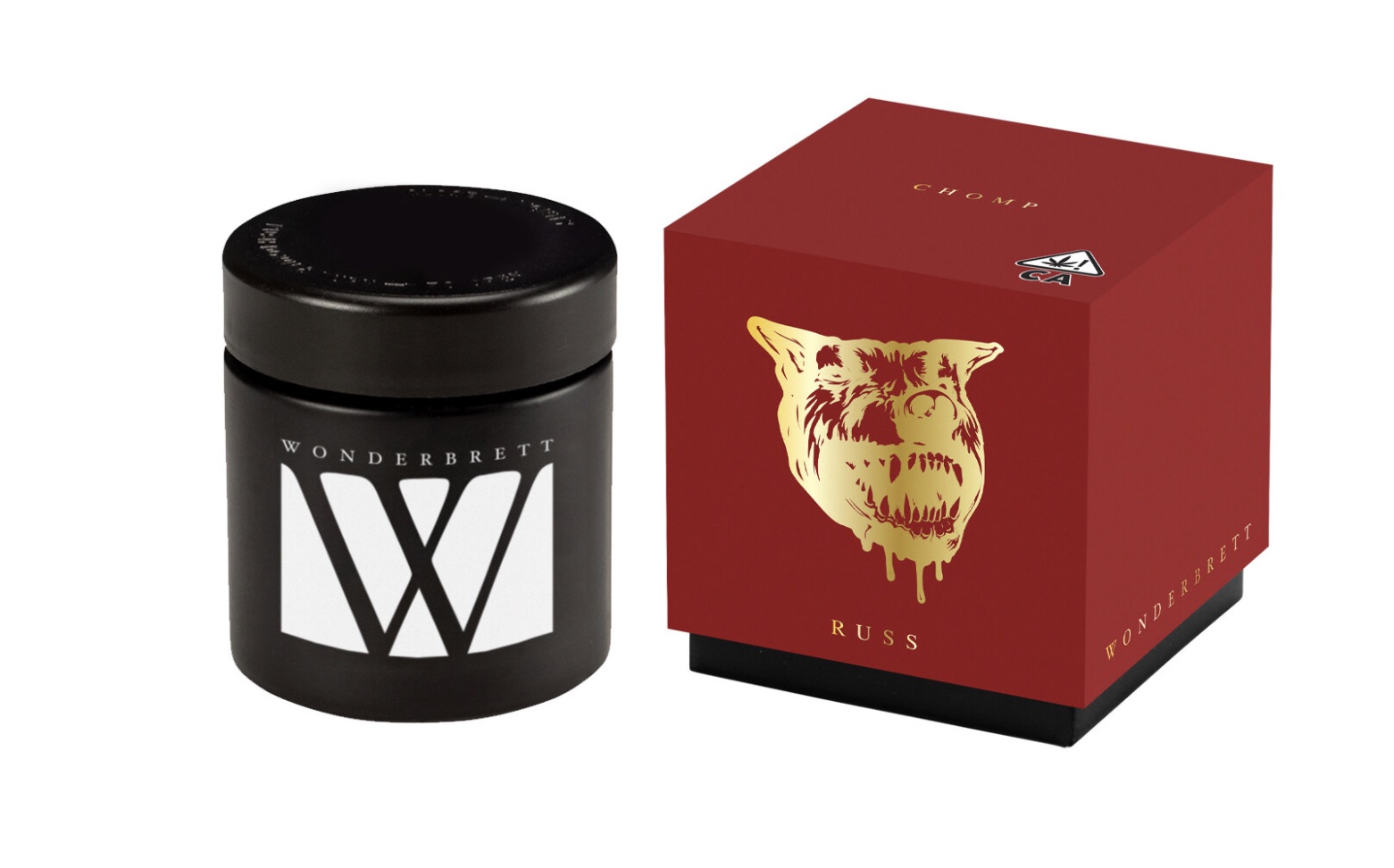
Retail Price: $60
Strain: Hybrid
THC: 26.91%
CBD: 0.07%
Dominant Terpenes: Limonene, Humulene, Linalool, Caryophyllene
We already reviewed Chomp, which is a collaboration with the rapper Russ timed to release alongside his EP by the same name. It’s a heady strain, much more suited for cerebral activities – like, say, recording a rap album — which I attribute to Limonene as the dominant terpene.
Grapes of Wrath
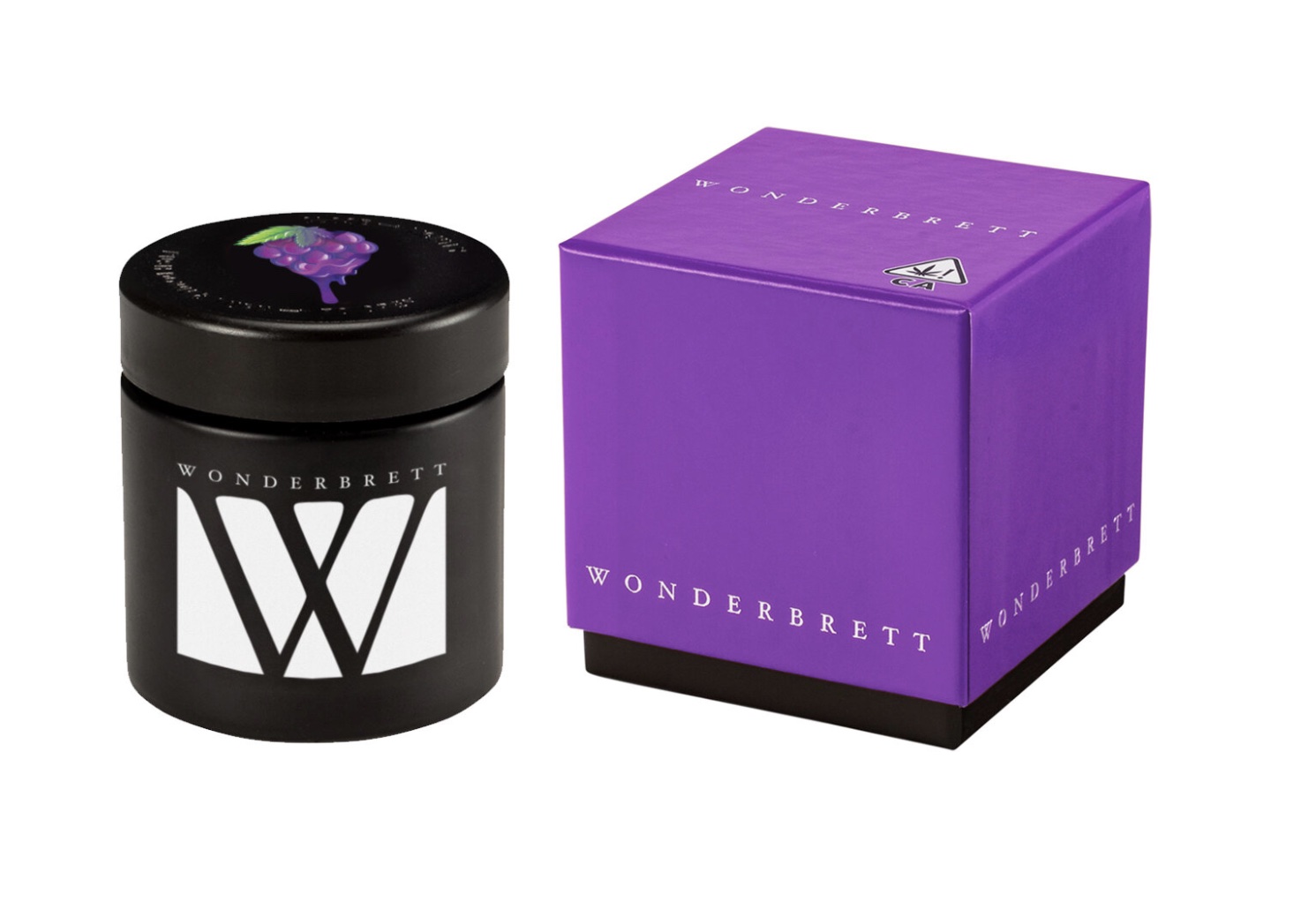
Retail Price: $60
Strain: Hybrid
THC: 27.65%
CBD: 0.07%
Dominant Terpenes: Limonene, Linalool, Humulene, Caryophyllene
Put simply, this is pool weed, a hybrid of Jet Fuel Gelato and Grape Pie. The high is heavy, befitting 27.65% THC, but uplifting, owing to the strong Limonene and Linalool content. It’s euphoric, something that would be greatly aided by listening to music, especially. This sounds weird, but it tastes like grape cake.
I’m not exactly sure what that means in reality, but a strong grape flavor accompanied by a yeasty, bready undertone makes sense to me here. The genetics are from Compound Genetics, purveyors of some of the hypest fire California’s breeders have to offer.
Cherry Trop
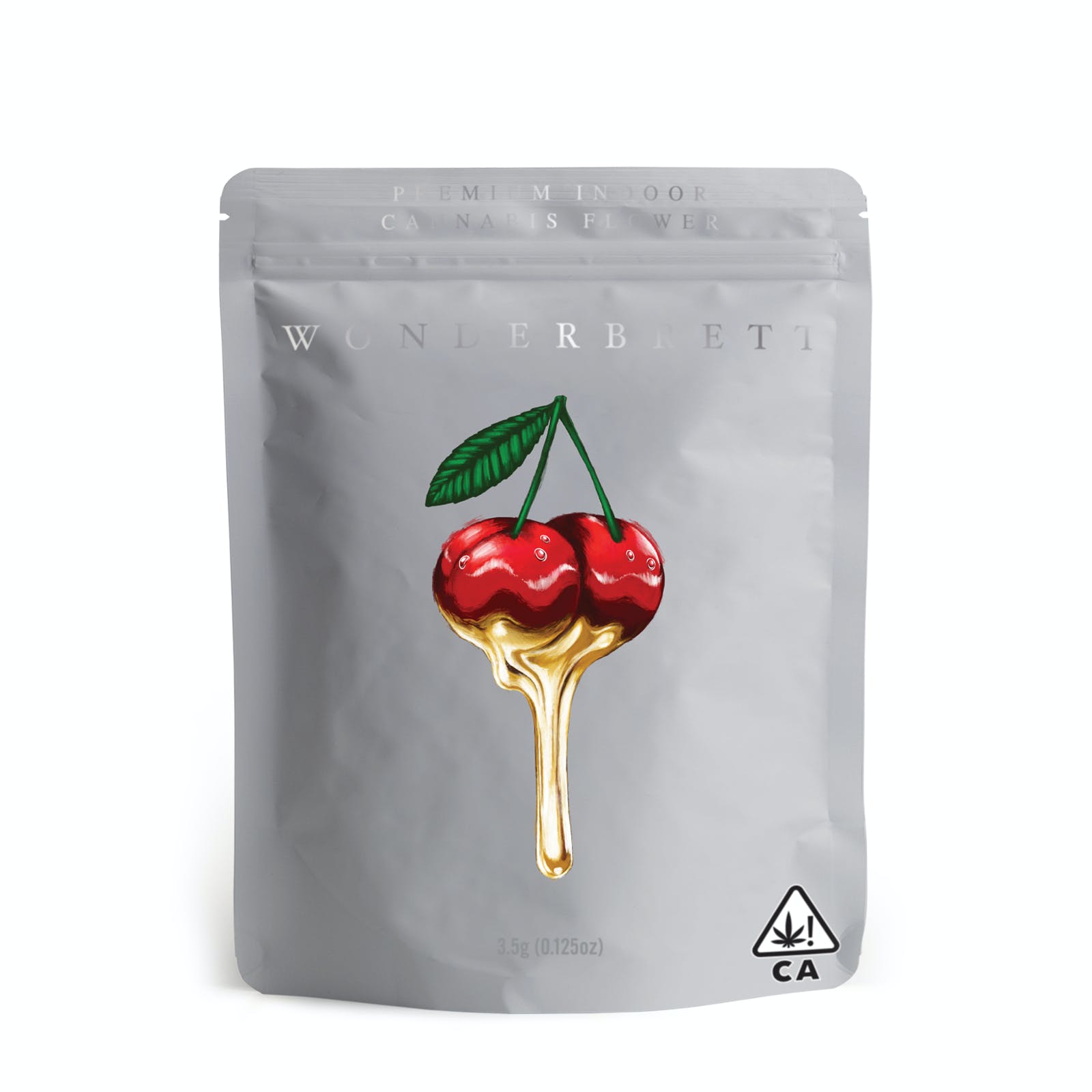
Retail Price: $60
Strain: Hybrid
THC: 26.43%
CBD: 0.06%
Dominant Terpenes: Caryophyllene, Limonene, Linalool, Humulene
One of the grow rooms that displayed some of the most beautiful bud, in my opinion, was Cherry Trop, which popped with deep purples and even reds, depending on the light. It’s a hybrid mix of Cherry Cookies and Trop Cookies, which came from a seed pack by Relentless. The overall flavor is fruit: stone fruits and citrus, redolent of a sunny day spent eating sour candies. At 26% THC, it’s strong, but it won’t knock you on your ass. This is a stimulating daytime smoker for any activity that requires movement and focus but not too much intellectual brainpower.
Wonderbrett’s music connection is still strong
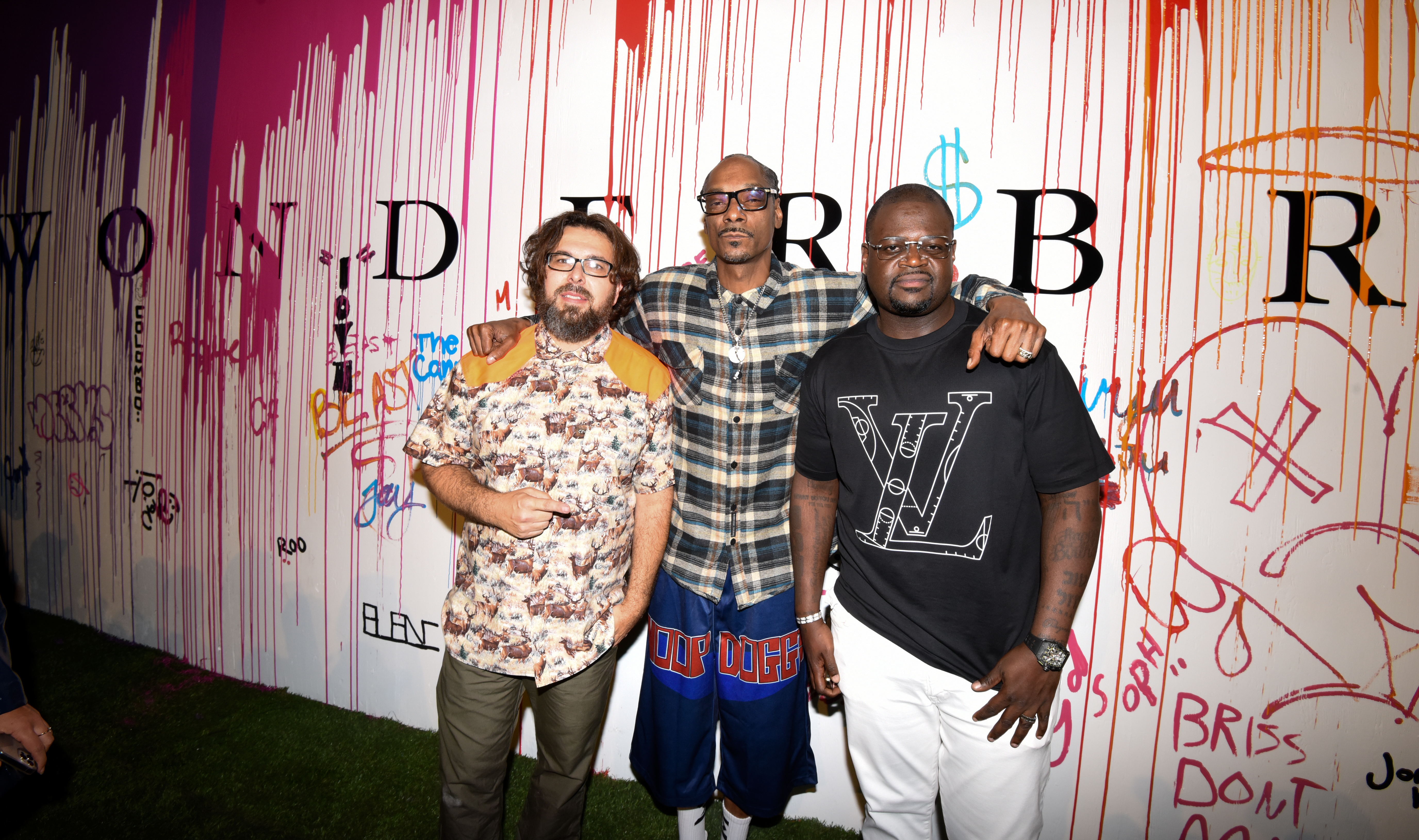
In addition to trying some of Wonderbretts current cultivar offerings and palling around with Feldman, I also got to talk to Poo Bear, who puts his money where his mouth is, as far as Wonderbrett is concerned. He said he was initially drawn to the brand through its highly stylized packaging — the brand’s signature color-blocked boxes – which struck Poo Bear as “very professional” in an era when weed was anything but. In the end, it’s really all about the weed and the man behind it, though.
“Brett always had the best product, you know, so when the opportunity came about to come in as an investor, I was like, ‘I would love to.’ I was investing in Wonderbrett because I just believe in him so much,” Poo Bear says of Feldman.
Poo Bear is also a major believer in Los Angeles weed culture, which he says isn’t just having a moment now – it’s always been quietly dominant. It’s just that people are finally starting to understand and recognize its greatness.
“I think LA took over awhile ago,” Poo Bear says of California’s mostly friendly competition between regional cannabis cultures. “You know, the Bay always had their purps, the things they were famous for. But L.A. has always been pushing it with these different flavors. It was probably like five or six years ago, scientists and growers just really started pushing the envelope in L.A. and I started to hear less and less about the Bay and L.A. just started filling that gap with consistency and variety. You see it with all the cannabis cups — L.A. wins all the cups. It’s definitely the cannabis capital.”
It goes without saying that Poo Bear thinks Wonderbrett was instrumental in making that happen and that the brand will be a staple of L.A. cannabis culture to come. After seeing their operation firsthand and smoking through the line, I’m ready to say I agree.


